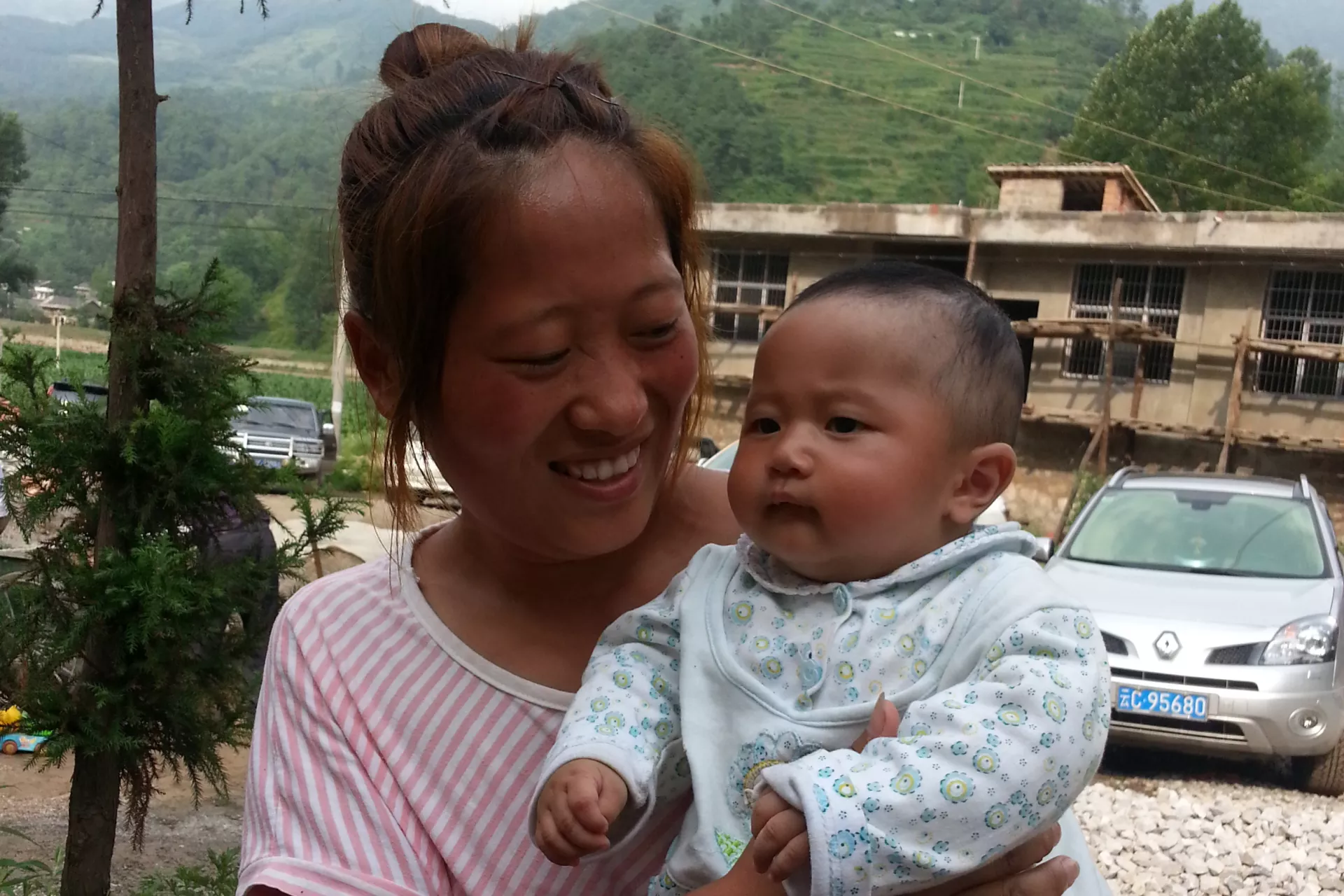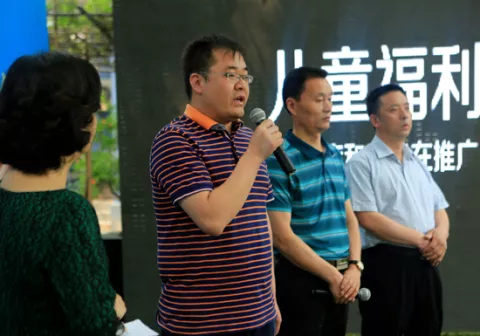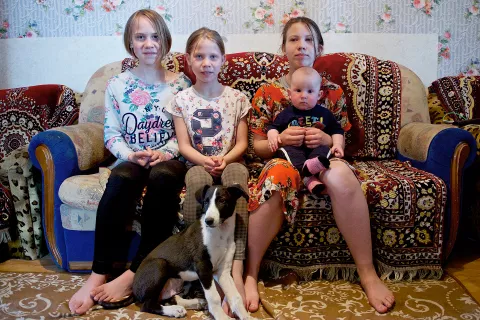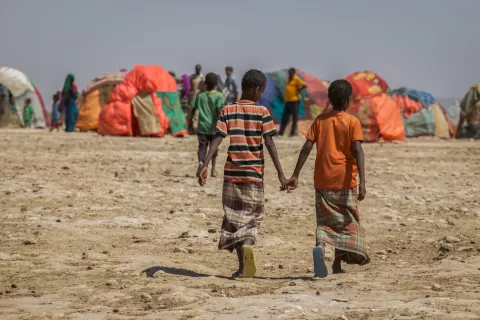"I live on a big mountain"
"I live on a big mountain"

- Available in:
- 中文
- English
UNICEF is supporting some of China's first experiments with a new strategy to help rural families escape the worst deprivations of poverty. The “Conditional Cash Transfer” (CCT) programme is being piloted in 15 remote rural counties of Gansu, Yunnan and Sichuan.
The CCT programme provides a cash incentive for families – often in ethnic minority areas – to adopt the best methods of child care, such as safe hospital childbirth, exclusive breastfeeding, improved sanitation and immunization. When best practices are fully adopted, families receive a cash payment which must then be used for the child's basic needs.
In their own voices two mothers currently participating in the programme provide a powerful up-date on the new approach.
Ji Duo's story
"Today, I came to the township hospital for a health checkup of my three-month old daughter. This is my son. When I got pregnant with my son, I was told by my mother-in-law that having baby is just like work in the field, nothing to worry about. I gave birth at home, and never heard about seeing doctors before delivery. My mother-in-law helped me during that delivery. I lost a lot of blood giving birth to my son and felt tired for a long time after."
"For my current pregnancy, the village doctor told me that I should go for antenatal care in the township hospital. I lived on a big mountain, it takes about 1.5 hours to go to township hospital and the bus isn't available every day. Also, I have to pay RMB 40 for a two-way ticket. I don't have the money. In July this year, the village doctor told me that there is a new Project which can help me with cash if I go to hospital as they ask, so I don't need to worry about the money for tickets. Also, the village doctor said she will accompany me the first time."
"I started to see doctors there and also delivered in this hospital. Now I am still following the doctors' advice to check my daughter every three months. This time, I also brought my son, so that the doctors can examine both of my children. The doctor just told me that both of them are growing well, and he told me how to feed my children."
"The doctor has given me RMB 370. Do you see the clothes my daughter is wearing and the blanket covering her? They were bought with the money CCT gave me. With these, she will be warm for the cold winter. I feel so happy, without this Project, my children and myself would not have had all this care. I hope the Project can last for a long time, so that all pregnant women and children in my village can benefit from it."
Zhao Yinlian's story
Besides the cash provided to beneficiaries, the CCT Project also supports a small amount of subsidy (3% of total cash transferred to the responsible beneficiary) to village doctors who look after the pregnant women and child caregivers in the village.
"Money is important, but the more important thing is, the village doctor tells me what I should do. I feel like the village doctor is holding my hand and leading me going through each step of having a baby…. My sister-in-law is working in Guangdong Province and she also got pregnant. When I mentioned CCT to her, she admired me a lot and told me that the city she stayed is too big, and doctors in the city cannot take good care of us as the village doctors do. Giving birth at the hospital is free of charge, and now I can even get money from the project, I have told my friends in the village to apply for the Project when they get pregnant." Zhao Yinlian enrolled in the CCT Project in the 1st trimester of pregnancy, and has completed all conditions related to antenatal care, hospital delivery and postnatal care. She received RMB 690 RMB from the Project Office.
The CCT programme, now operating in 15 counties of Gansu, Yunnan and Sichuan, has enrolled about 1,000 mothers and 400 children. A well-functioning management information system has been developed to keep track of all the families' progress. One of the early outcomes is increase in the number of women who are willing to deliver their babies in hospital. In Sichuan's Muli County the CCT project has contributed to the hospital delivery rate going up by 40%.




